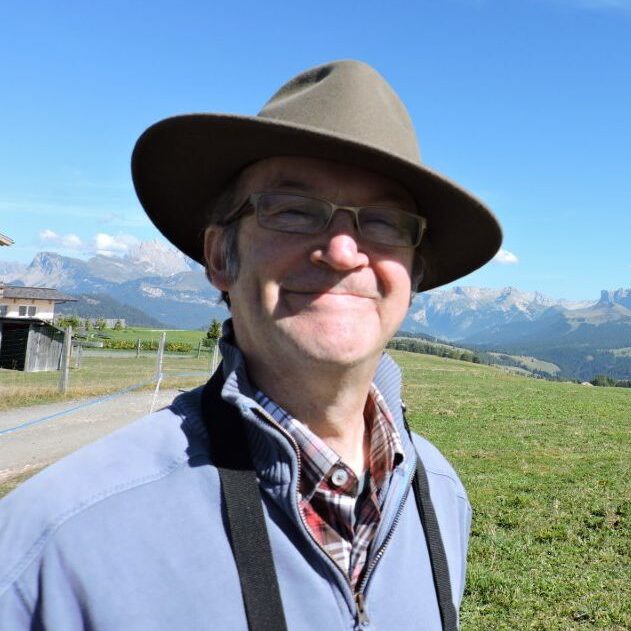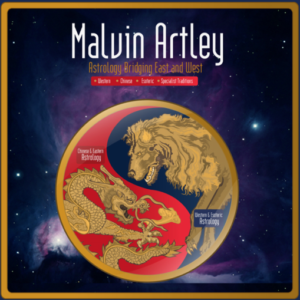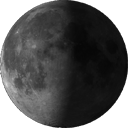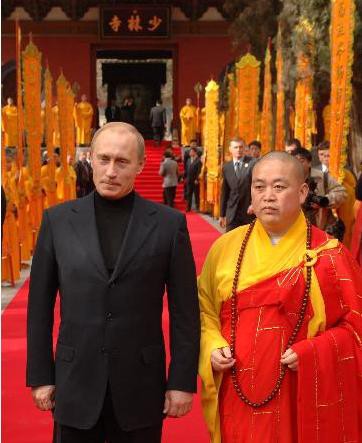
2014 in L'Alpe di Siusi, fresh from the US and Australia.
This site will be undergoing upgrades for the next months (from Sep 2021). Check back in from time to time!
If you would like a consultation, go to the 'Enquiries' button at right and fill out the form
To subscribe to the monthly newsletter, go to the 'Subscribe' button at right
I can be reached and read at the social media icons, top right
Comments to newsletters are temporarily closed. If you want to comment, contact me at admin@malvinartley.com or use the 'Enquiries' button, at right


WE REALLY NEED TO TALK ABOUT RUSSIA
© Malvin Artley
It is easier to fool people than to convince them that they have been fooled.[1]
Mark Twain
Why talk about Russia?
The demonization of Russia
Just who is Vladimir Putin?
Our Historical Epoch
Before we even start, there is a short video that will set the tone for what is to follow in this two-part article…
Ready? This paper is largely in response to the alarmingly negative and dangerous media coverage in recent years about Russia and her people, both in mainstream and social media. It is a long piece, therefore in two parts, and is meant to be read and digested over time. Although what is addressed herein is applicable to our society in general, it leans toward readers who have more of a grounding in esoteric thought, and who are more liberal in their thinking. What we are about to examine here is a topic that many readers will likely find at odds with their current beliefs about Russia, even quite confronting, especially if one’s main sources of information about that nation are the mainstream media outlets (MSM) in the West. In fact, for readers in the US, UK and Australia, what follows will sound like pure Russian propaganda, and what follows would be labeled ‘Russian disinformation’. People can think what they like. I can already hear the comments. But, to engage in such a belief is destructive as well as being stifling to any constructive discourse. For myself, I have sought in my mind a clear, informed, rational understanding about Russia, especially in the context of historical development and our present changing world. This paper is my sharing of the results of my own investigations about that land, her people and her present government. There are numerous links to articles, paper, videos and so forth for reference, and these will take time to wade through, if one is inclined to do so.
It has taken some time for me to undo my own past conditioning, much of which was so ingrained as to be subconscious, knee-jerk and patriotic, from film, conversations, negative media coverage and so forth, about Russia and her people. That conditioning constitutes what is called a powerful ‘glamour’ in the Alice Bailey books. That conditioning was foisted on me and Americans in general from a very early age. In fact, I would say that there are very few Americans alive today who have not been steeped in anti-Russian propaganda and negative portrayals of Russians. However, independent sources – people who know Russia, have interacted with Russians and have traveled and lived there – present a very different picture of Russia and Russians than what we are told. When we examine Russia in light of these other sources it becomes clear that we in the West have been lied to and deliberately misinformed by supposed ‘experts’ in many instances and the MSM, about Russia, Putin and their history with the West. In the West, Russia is seen in a less than favorable light these days, to put it lightly. Putin is seen as the ultimate villain. But ‘these days’, as it turns out, actually go back a long way and have been hammered into the public opinion of primarily Western nations for many decades. Are such opinions justified, though, and backed up by facts? How much do we really know about Russia in the West? And, do we really need or want to know? The latter question is more important, more confronting and more to point.
Aside from the concerns of terrible conflicts, though, there is a far more important and humanistic reason for understanding and dialog with Russia, and it is stated most clearly in the following quote:
…there are three great fusing energies or vital centres present upon our planet:
a. Russia, fusing and blending eastern Europe and western and northern Asia. [in the past, via the USSR, but now increasingly through economic and strategic cooperation]
b. The United States (and later South America), fusing and blending central and western Europe and the entire western hemisphere. [via the Marshall Plan, the EU and NATO]
c. The British Empire [now Commonwealth], fusing and blending races and men throughout the entire world.
In the hands of these nations lies the destiny of the planet. These are the three major world blocs, from the consciousness angle and from the angle of world synthesis. Other and lesser nations will participate in the process with full independence and cooperation, voluntarily and through the perfecting of their national life in the interests of the whole of humanity and through the desire to express and preserve their soul integrity and their purified national purpose (which purification is now going on). The keynote, however, of human living will be struck by Russia, Great Britain and the United States — not because of their power, their historical past and their material resources or [Page 105] territorial extent, but because they are in a position to fuse and blend the many types, because they are far-visioned in their world purpose, because they are not basically selfish in their intent, and because the government of the peoples reaches down into the depths of each nation and is fundamentally for the people…[2]
(Bolding, brackets and italics added for emphasis.) The above being said, we could argue about the extent to which we have government for the people in those three nations, the selfishness or not of their governments and special interests and all, but we will save that for another time. However, in that regard, the United States, for all its talk of freedom and “government of the people, by the people, for the people” as written in their constitution, has a major point of reckoning coming, and within the next few years. That reckoning is being self-induced through government, social and economic policy, but may be triggered by external forces or events. However off point that might seem here, it is central as to why we have such a poor dialog with Russia at the moment. And because the US and UK are so closely connected in so many ways, we see the same sorts of attitudes reflected in the UK and throughout the extent of the Commonwealth of Nations. It is not by accident, and it has been vigorously pursued by interests behind the scenes, unelected, very well-financed and working outside the laws of their respective lands to a large extent since the end of WWII, when the preceding quote was written. This is well documented, as we will see. However, before we get to the many reasons why this is taking place, it would be helpful to establish a basis from which we can begin a more fruitful and peaceful dialog with the Russian Federation, and that lies in our common humanity. We are not so different as to our citizenry, as it turns out.
There is another point to keep in mind as we go along, though: The largest part of Russia is essentially uninhabited, with 2 people or less for every square kilometer, which is staggering if we think about it. When we talk about Russia, then, what we are really discussing and where the West really has a problem, is with European Russia (west of the Urals on map above). More to the point, European Russia is Eastern European, and many of the prejudices and stereotypes about Eastern Europeans are played upon in Western Europe, the US, Australia and Western media in general. (here, here, here, here and here) In the words of Zbigniew Brzezinski, a native Pole and one of America’s favorite Russophobes:
“Given that Russia’s demographic center of gravity is in Europe, and that its culture is derived from Byzantine Christendom, Russia can be legitimately seen as the Eastern extremity of Europe, in both geopolitical and cultural terms.”[3]
European nations have tried to invade and conquer European Russia several times in the past 300 years. Each attempt resulted in a decisive Russian victory and re-wrote the boundaries of Europe. The last time was with Operation Barbarossa by Nazi Germany and allied Axis nations. The USSR faced 148 German divisions – 80% of the German Army – in what was the largest military operation in history, and eventually prevailed, as we know from history. It was largely the Russians, not the West, who defeated the Nazis. But the cost to the USSR was terrible, with the loss of 20 – 27 million people in WWII, or about 14% of the total population of the USSR. This is mentioned for context, as it is still fresh in the memory of Russians, and stands as one of the main reasons why they occupied Eastern Europe after WWII, and is another major reason why Russians view the NATO encroachment to their borders with due suspicion and alarm. So, why all the suspicion about Russia, given the West cannot seem to put the shoe on the other foot in understanding that country, her government and her peoples?
Wisner’s work additionally gave rise to a pseudo-liberalism, which we see in what is now called the ‘liberal left’ in the US, but which is actually repressive of any true freedom of thought. Wisner’s campaign has been quite effective, and it was instituted in 1947, with the creation of the CIA, and seeded throughout Europe and the Middle East thereafter. Stalin died in 1953, as did Stalinism shortly after, but the stigma lived on in the demonization of the USSR, and later the Russian Federation, kept alive by the programs developed in the CIA – from “Wisner’s Wurlitzer”, as it was known in the agency, to Operation Mockingbird, to the manipulation of Hollywood, and lately through social media. Now, much of that sort of work is done through the NGOs, such as the NED. Just considering this paragraph alone gives one cause to question what we hear in the MSM and from government sources about Russia. And then, there is this:
The USSR was a communist, totalitarian state which openly advocated revolution and the devolution of the Western emphasis on capitalism, whereas the Russian Federation has sought from the beginning to integrate itself with the West in some fashion, but has been knocked back at every turn. As for its politics, the Russian Federation is classed now as a ‘hybrid regime’ – neither a full democracy nor a fully authoritarian regime, depending on which source one checks. It is also not a communist state, but rather has a mixed economy, with part state control and part neo-liberal economics. British and American sources tend to class Russia as authoritarian, whereas more scientific sources cite it as being hybrid. Many Americans still think Russia is a communist state. It is a state in transition out of the old communist, totalitarian USSR model. It also has a powerful oligarchy, put in place during the Yeltsin years under the American plan of ‘shock therapy’ after the collapse of the USSR. What the Russians actually had was the shock without the therapy. It will be of interest to American readers, too, that due to recent developments in American politics, the US has been reclassified as a ‘flawed democracy’, on par with Italy, which tends to take the gloss off the idea of the US being the “shining city upon a hill”. So, all this leads us to look at what we hear in the MSM about Russia and American exceptionalism, and then to see if there is any truth in it. Hopefully, this will lead in turn to a more considered and informed approach when we talk about a nation that is one of the three main nations shaping the world’s destiny, and with whom we should be at least on speaking terms.
Just who is Vladimir Putin? What we hear: Vladimir Putin is a corrupt, authoritarian leader – a thug.
The facts: The great majority of Russians would most heartily disagree. They gripe about him all the time, but we gripe about our leaders, too. That doesn’t mean they want to see him leave office. This portrayal as villain is a very typical propaganda meme that is employed in order to garner support against anyone who does not toe the line with another nation’s expectations. It has been called “atrocity propaganda”. Putin is constantly portrayed in this sort of light in the West. People who know and who have had business and personal dealings with Putin tell a very different story than the ones we hear.
Another view: Rather than focusing on who we think Putin is, though, we may want to consider the following points, from a recent talk by Prof. Stephen F. Cohen, Russian scholar. Regarding Putin:
Professor Cohen ended his talk by suggesting a few things which might form a part of a future honest biography:
As a young and inexperienced leader placed at the helm of a collapsing state:
The key thesis is this: Putin began as a pro-Western, European leader and with time he realigned himself with a much more traditional, Russian worldview. He is more in line with Russian voters today.”
So, before we go into the main points that are constantly harped on in the Western press, there is one more point to examine, from the Russian view, and keeping the preceding points in mind.
Our Historical Epoch: To summarize all the above and put it in context, we have the following statement by Russian Foreign Minister, Sergey Lavrov, from a recent interview:
Russia is actually in a good position at the moment, in spite of and actually because of the Western sanctions. And, with the proper attention of the government, barring any catastrophes, will likely see the Russian public even better off over the coming years, given her present pace of development. We cannot expect Russia to conform to our Western European and North American ideas of freedom and democracy. Her place in the emerging world order is primarily with the East, and the major domestic developments we will see there in the next years lie in her eastern regions. Those developments will add considerably to Russia’s wealth, should raise the standard of living for most if not all Russians, as well as her world standing. The events of recent decades have drawn out the best of Russia’s Leo personality, in the respect that those events have caused Russia to re-examine herself and her motives, to become more self-sufficient, to show self-discipline, to show leadership instead of brinksmanship (it is now Washington and the MSM that exhibits such fiery rhetoric), and a rejection of everything that goes against her development. Such events have also begun to draw out the Russian soul, which seeks to live up to its motto, “I link two ways”[4], which promotes the more Uranian (as in the planet, Uranus) aspects of innovation, of restoring order, of paving a way toward a more spiritual expression and so forth.
to show self-discipline, to show leadership instead of brinksmanship (it is now Washington and the MSM that exhibits such fiery rhetoric), and a rejection of everything that goes against her development. Such events have also begun to draw out the Russian soul, which seeks to live up to its motto, “I link two ways”[4], which promotes the more Uranian (as in the planet, Uranus) aspects of innovation, of restoring order, of paving a way toward a more spiritual expression and so forth.
In closing this section, then, the descendants, or perhaps maintainers, of ‘Wisner’s Wurlitzer’ – the likes of the Washington Post, the New York Times, the Guardian, the New York Magazine, even the Daily Beast, et al – continue to churn out Wisner’s baleful tunes about the Russian menace to Western society, the darkness and backwardness of Russian society and her intransigence and wiliness, while failing to investigate neither the real threats to Western life (which are internal) nor the truth about Russian society. There is far more to the Russo-phobia than what we are told in the daily news. The world is indeed changing, and Russia is playing a key role in that, obviously much to the chagrin of the Western establishment. New economic models are emerging, which is where the real outside ‘threat’ is. New power and economic blocs are taking shape. The East is rising in prominence and challenging our Western modes of thought and beliefs. This is unavoidable, even perhaps to be welcomed in many instances. For all of our hand-wringing and unjustified fear, what does it profit us? More to the point, who does it profit? Our current attitudes as expressed in the MSM and many members of the Washington establishment toward Russia are on the whole unreasoned, ill-informed and downright reckless.[5]
The West’s hatred and mistrust of Russia runs deep. It will take time to change that view. It will take interacting with Russia on a more level playing field and more and more people willing to confront their own biases and question what we are told, approaching a dialog with the people in that vast land on an equal basis. It will also take interacting with Russians on a personal basis increasingly over time. When we begin to see that we have been manipulated to see Russia as a threat in order to maintain our present economic system and power, then things will begin to change for the better. The world’s view of Russia is improving, whereas views of the US are worsening internationally. If events continue at their present rate and trends, Russia will equal the US as being seen favorably in the eyes of the international community in a few short years. What will that mean for the US? For Europe? The current administration’s policies and attitudes are hastening that changing world view. Just as the Soviet Union found in the lead-up to its collapse, our biggest problems in the West are internal, not based in some mysterious, dark land across the ocean or continent. It is time to stop focusing on ‘the other’ as to our problems and instead roll up our sleeves and get to work cleaning up our own back yards. We deserve to hear the truth. Russia is a big land and the few Russians I have met are no different from the rest of us. Russia and Russians are here to stay, and they are being increasingly accepted on the world stage as fair partners. We in the West ignore this to our detriment and need to re-think our views of that nation.
I will end with a personal anecdote. As an American, I was also heavily influenced about Italian culture via the media, and Americans frequently made fun of Italians – speaking with the hands, endless jokes about pizza, spaghetti, goombas, the Mafia and so forth. The Mafia is supposed to be endemic, one has to be careful of pickpockets, you have to bribe everyone to get anything done…most people reading this would have had some experience along those lines. When I first arrived in Italy, I learned very quickly that most of these characterizations/stereotypes were simply untrue. Some of the corruption, crime and so forth does take place, but it tends to be regional. Italians do not eat pasta and pizza at every meal, although we do love it here, and it is a fine art. There is an Italian sign language, but it is far more involved than what we are shown in America, and Italians can be quite ‘creative’ when it comes to driving rules. But that is about where the stereotypes stop. Italians on the whole are very warm and welcoming once they get to know you and you quickly become one of the family – in the good sense. Americans feel the same toward Italians once they get to know them. Why should Russians be any different? I’ll give you a hint: They are actually quite warm-hearted.
END Part I. Continue to 2nd part…
In Part II, specific gripes about Russia and if they hold water.
Blessings,
Malvin
17 Jul 18
Picture credits:
Red Square: https://www.nationalgeographic.com/travel/world-heritage/article/kremlin-red-square
Sarmat: https://www.gamingdeputy.com/the-latest-missile-sarmat-was-called-the-defender-of-russia-for-the-next-30-40-years-allnews/
European Russia: https://quizlet.com/203700950/physical-geography-of-russia-flash-cards/
Truth dollars: https://www.wsws.org/en/articles/2015/08/11/wur1-a11.html
Putin: https://tass.com/society/1154865
Lavrov: https://www.themoscowtimes.com/2017/04/25/the-man-behind-the-title-what-you-need-to-know-about-lavrov-a57818
Putin with monk: https://dissidentvoice.org/2022/04/the-tao-of-vladimir-putin/
Additional/optional views on Russia and Russian culture:
(I don’t necessarily agree with all views expressed by these sites, but they are worth a look.)
Family life in Siberia: https://www.youtube.com/hashtag/backyardrussia
Information Agency of Greater Russia: (machine translate) https://novorosinform.org/
Interesting miscellany on Russia: https://www.rbth.com/
Intellinews: http://www.intellinews.com/ (news on emerging markets)
RIA Novosti: https://ria.ru/ (translate)</span
Russia Insider: https://russia-insider.com/en
Russia Today (RT): https://odysee.com/@RT:fd/RTlivestream:8
The Saker (Andrei Raevsky’s blog): https://thesaker.is/
The Real News: https://therealnews.com/stories/growing-up-in-the-ussr-rai-with-a-buzgalin-1-12
Unz Review: https://www.unz.com/tcategory/foreign-policy/
Vesti News: https://www.vesti.ru/news (translate to English or mother language)
Related